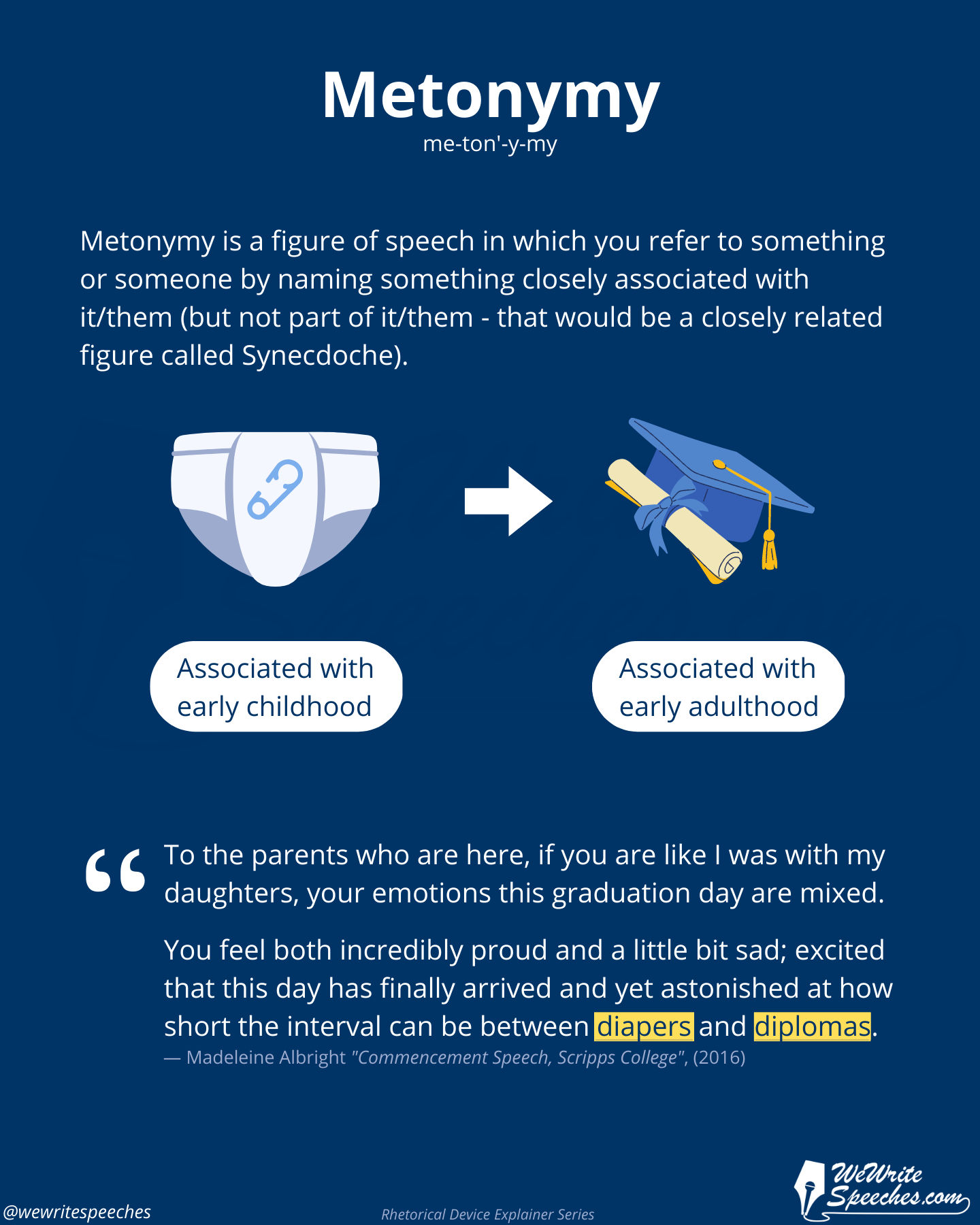Rhetorical Device: Metonymy
Metonymy is a rhetorical device in which a single word or phrase is used to stand in for a larger concept or idea. This is done to create more vivid imagery or to make a point more quickly and clearly. Metonymy is typically based on objects or places. Here are some examples:
Metonymy based on objects
- The term the brass is used to refer to military leadership; brass, which is an alloy of copper and zinc, is closely associated with military leadership because the higher ranks of the military typically wear uniforms that have many brass buttons and medals.
- Red tape refers to a bureaucratic process. The association of red tape with administration is believed to have originated with the rule of King Charles V of Spain in the early 16th century. Starting during his reign, red tape (rather than string) was used to bind dossiers that required immediate discussion by the Council of State.
Metonymy based on places
- Langley, a community in Virginia, USA, is used to refer to the Central Intelligence Agency (CIA), because it is headquartered there.
- 10 Downing Street or sometimes just Downing Street refers to the UK Prime Minister's office.
- Fleet Street, a street in London where newspapers were once printed, refers to the British press.
- Hollywood, a district in Los Angeles, California, refers to the American film industry.

Examples from speeches
In this paragraph, Barack Obama uses the phrase "when the uniform comes off" to refer to when the soldiers return to civilian life:But we know that the sacred trust cannot expire when the uniform comes off. When we fail to keep faith with our veterans, the bond between our nation and our nation's heroes becomes frayed. When a veteran is denied care, we are all dishonored. Senator Barack Obama, "A Sacred Trust, Kansas City, MO" (21 August 2007)
To the parents who are here, if you are like I was with my daughters, your emotions this graduation day are mixed.
You feel both incredibly proud and a little bit sad; excited that this day has finally arrived and yet astonished at how short the interval can be between diapers and diplomas. Madeleine Albright, "Commencement Speech, Scripps College" (14 May 2016)
In the following passage, Malala Yousafzai applies the well-known adage, originally created by English author Edward Bulwer-Lytton in 1839, where "pen" is a metonymy for "the written word" and "sword" is a metonymy for "violence".
The wise saying, "The pen is mightier than the sword". It is true. The extremists are afraid of books and pens. The power of education frightens them. They are afraid of women. The power of the voice of women frightens them. Malala Yousafzai, "UN Speech on Youth Education" (12 July 2013)
In this example the word "bread" stands in for "livelihood". Compare this to the example on the synecdoche page where the same word stands in for a full meal.
It may also come as a surprise to some of you, but I want you to know that you have my admiration and my respect. Yours is a most honorable profession. Anyone who is in the broadcasting business has a tough row to hoe. You earn your bread by using public property. When you work in broadcasting you volunteer for public service, public pressure, and public regulation. Newton N. Minow, "Television and the Public Interest" (9 May 1961)
